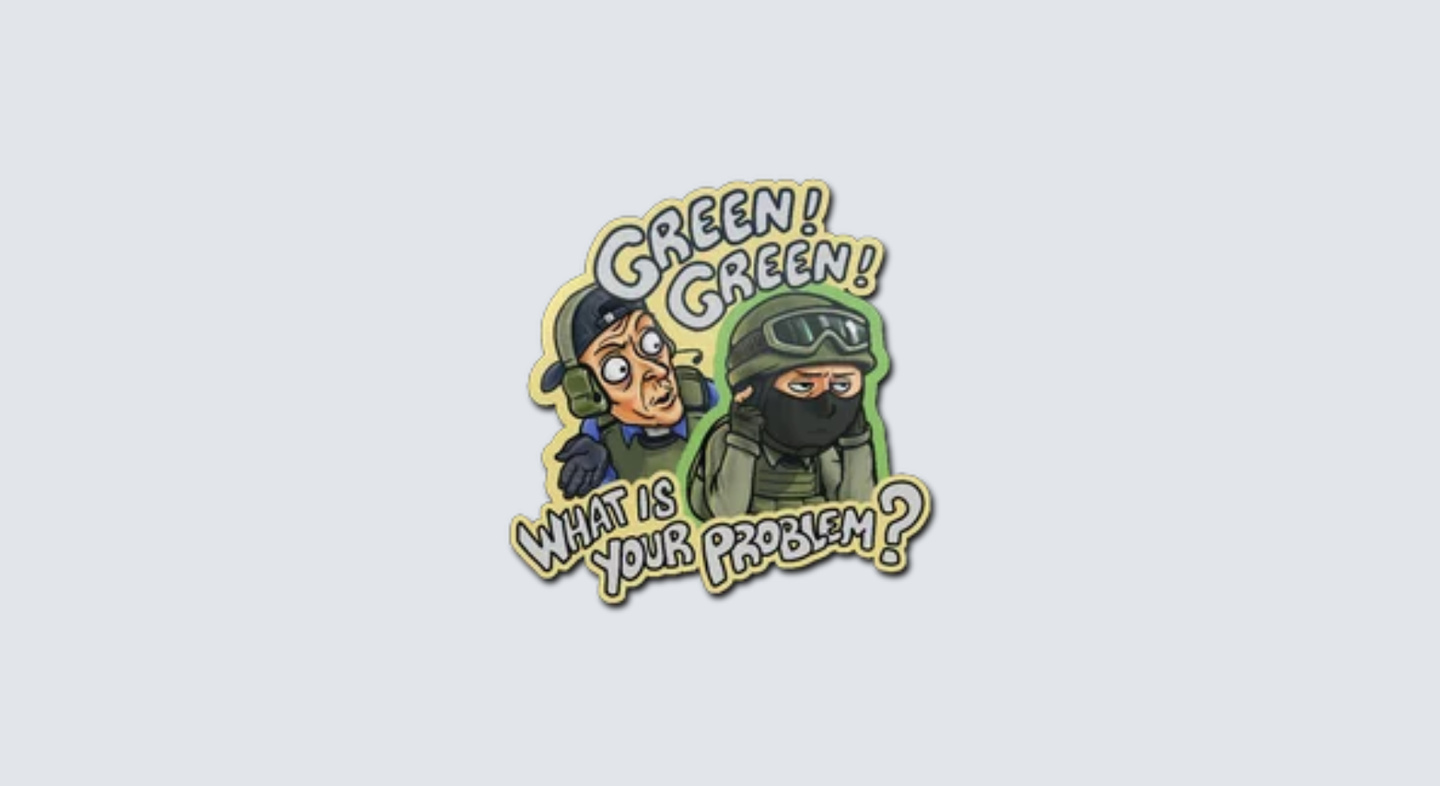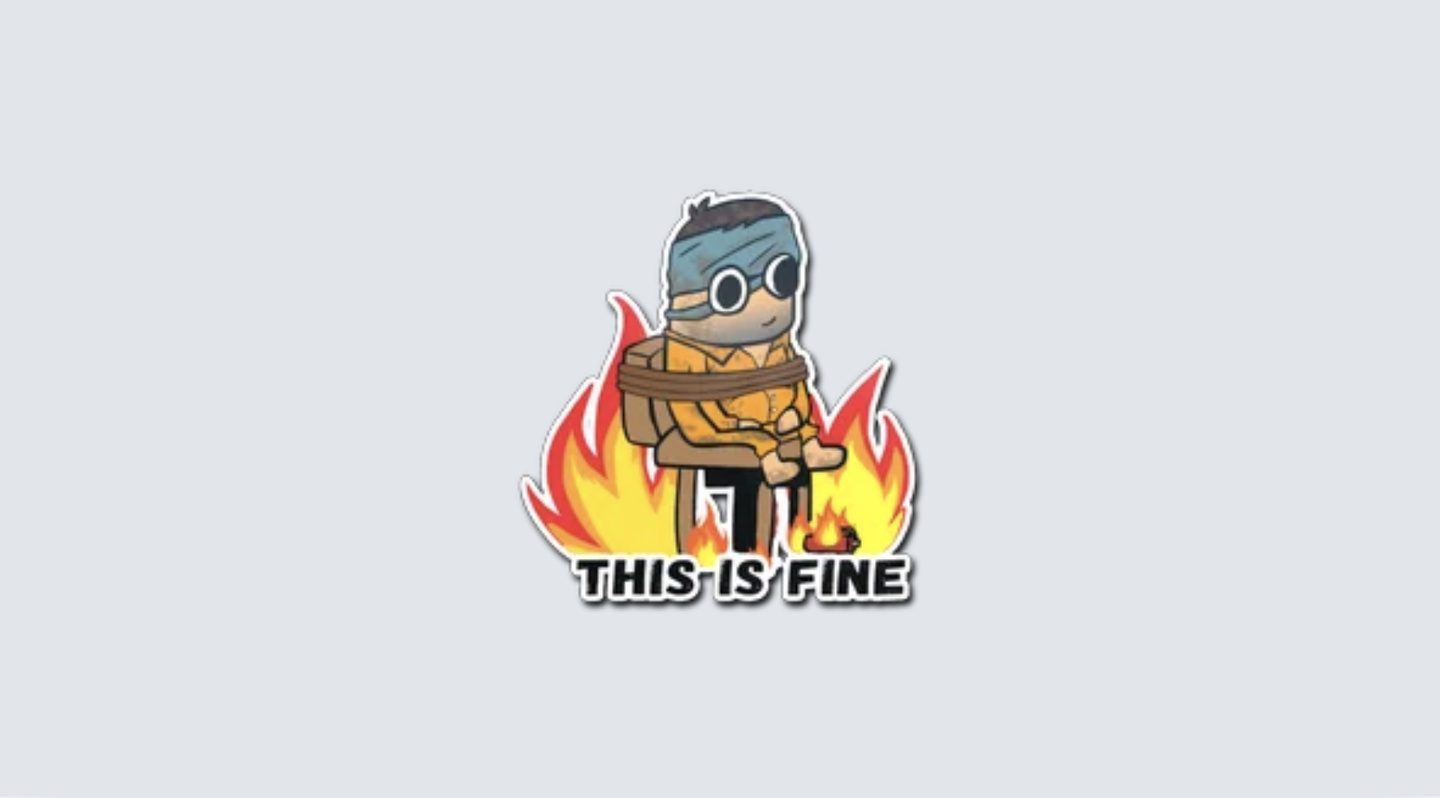Introduction
If you play any sort of competitive game, you’ll know what tilt is. Your mood is down, nothing seems to work, and no matter how hard you try, you only seem to be playing worse and getting more frustrated as a consequence. Luckily, preventing this state of mind from happening in the first place is a skill that you can learn. If you know how to avoid tilting, you’ll drastically reduce the amount of times that it happens to you, making you a much more consistent gamer in the process.
How to recognize tilt
It’s important to recognize the difference between tilting and frustration. Things such as giving yourself a mental kick up the butt for missing an easy shot on an unaware opponent is part of the competitive drive that makes players improve. So frustration isn’t necessarily bad, as long as you can move on from it relatively quickly.
However, once frustrations start to build up, they can cause you to spiral into an altered state of mind. And once you’re there, it can be incredibly difficult to get out of that rut.
Tilting can manifest itself in different ways, depending on the person. But there are some general signs to be aware of:
- The game starts to feel personal instead of challenging in a fun way
- You’re playing with tunnel vision, constantly trying to get revenge on a certain player or make certain plays work
- You keep blaming external factors for your subpar performance, even when you (secretly) know they have nothing to do with it
- You’re often making very risky or subpar plays in order to improve your score or gameplay
In short: you’re playing badly, you’re angry about it, and you keep trying increasingly outrageous ways to snap out of it or cope with it.
What causes tilt?
There are many things that can cause a player to tilt. These include:
- Bad teammates or teammates who don’t play like you expect
- Fatigue or just having a bad day in general outside of the game
- Stress or high pressure situations (when it’s a rankup game, for example)
- A string of 50/50 duels that did not go your way
- Toxic players (enemies or teammates)
- A string of round losses
- …
Different players have different tilt triggers, but in general we can say that pretty much any string of negative experiences can cause tilt. If you’ve played for a bit, you’ll probably know what triggers you specifically. And if you’re new to competitive gaming, it can be a good idea to mentally take note of the things that really grind your gears.
Why is tilting bad?
Tilting it bad for a variety of reasons.
First of all, anger has a negative effect on your brain. It can impair your concentration and increase your tendency to make impulsive decisions. In their rage, players who are tilting often resort to spur-of-the-moment decisions in an attempt to get the upper hand again. Usually, these kinds of plays are subpar, leading them to be punished by the enemy, thus increasing anger and frustration levels.
Secondly, no one likes a tilter. Even if you don’t take it out on your teammates, you’re still going to be making bad plays that have negative consequences for the team.
Lastly, tilting makes you way too conscious of your own basic gameplay mechanics (such as aiming) to the point that it’s detrimental. There is a time and place to really finely tune and hone your mechanics, of course, but a competitive match usually isn’t that.
To explain that last point more clearly, take running on a track as an example. You know how to do it without thinking, and you feel perfectly safe doing it. But if you start to think about when exactly to place down your foot and when you should bend your knee, odds are you’ll start to run in a really awkward fashion.
Of course there is a time and place to improve your technique, like in training or practice runs. But if you do this in a race, where tons of other factors (starting pistol, energy conservation, the positioning of other people, …) are at play, you’re more likely to trip over your own feet than you are to magically improve.
If you’re tilting while gaming, even the mundane act of making a skill jump that you normally always hit becomes much more difficult than it should be.

How to manage tilt when it’s happening
It’s always better to avoid tilting than it is to try to make it go away. However, no one is immune to it. Even the coldest pros have their moments of tilt, so it’s important to know how to manage it. Here, we’ll highlight some good short-term strategies to do just that.
Focus on your breathing
Take a couple of deep breaths. Really focus on your breathing. It’s a scientific fact that breathing exercises (slow inhale through the nose, hold, slow exhale through the mouth) help you calm down. Furthermore, focusing on your breathing takes your attention away from the game. This might just be the tonic you need to snap out of it.
Stand up and stretch
This tip is similar to the breathing tip. Standing up and stretching a bit at your desk takes your mind out of the game world for a bit, which can help you reset.
Don’t slam your equipment
A lot of people resort to (desk) slamming as a way to vent frustrations. But doing so can lead to all kinds of annoyances, ranging from your drink falling over and causing a mess to the destruction of gear. Furthermore, it’s not a healthy way of coping. Doing so over and over can cause this to become an ingrained habit, which can sometimes have real-life consequences (such as damage to your body or equipment).

Don’t linger on the past
What’s done is done. Sure, you might’ve missed the world’s easiest spray and lost the round, but you can’t change that anymore. Leave it in the past.
It’s always a good idea to review your own performance with a clear mind, but if you’re in the middle of a hard-fought game you’re absolutely not playing with a clear mind. If a mistake has been made, acknowledge it, pledge to try to do better next time, and then move on. Phrases like ‘it’s a fresh round’ or ‘that round is done’ can really help you internalize this.
Count to ten before giving feedback (or don’t give it at all)
If you see a teammate make an objectively bad play, it’s normal to be frustrated. But if you immediately air out your frustration, odds are that it’s going to come out more harshly than you’d like. This can cause your teammate to respond in a similarly aggressive tone, which can quickly cause things to spiral out of control.
If you play in a coordinated team, or you know that your teammates are open to feedback, take a beat to formulate your feedback in a non-confrontational manner when the round or match is over. This gives you a chance to cool down yourself, too.
Added tip: when playing with randoms, get a feel for who they are first. If the randoms don’t seem to appreciate your feedback, let it be. You’ll never play with them again, so there’s no need to get into a fight over their playing style. No one elected you to be their leader, after all.
Mute toxic elements
If you’re the type of person that gets triggered by toxic teammates or enemies, simply mute them. There’s nothing wrong with muting flaming or trolling teammates. Obviously, you should be able to take constructive feedback, but no one should listen to vitriol in an online video game. Especially not when it’s making you frustrated.
If you find that you easily get riled up by enemies typing ‘ez’ or things like that, most games allow you to mute teammates by default. That’s a good option to explore if you’re sensitive to that kind of stuff.

How to Avoid Tilt
Prevention is always better than cure. Luckily, there are various tricks that you can employ to avoid tilting. Some require a bit of a mindset change, but others can be applied instantly.
Make sure you’re rested, hydrated, and fed
We get it, this is a boring tip. But it’s an incredibly important one. If you’re going to be playing a bunch of competitive matches, make sure your body is in top shape. If you’re playing with a rumbling stomach, you’re going to get annoyed faster. Not being properly hydrated will lower your cognitive functions. And playing while exhausted lowers your focus and reaction speed.
Obviously, this tip can’t always be followed. Players with a newborn baby will not be able to sleep for 8 hours the night before they grind, and that’s part of life. But in general, it pays off to make sure you’re in the best shape you can be before playing. A 20 minute power nap followed by a small snack can do wonders for your performance.
Don’t play high-stakes games when you’ve had a rough day
This goes without saying, but many people queue up to play competitively when they just had a rotten day. And while gaming can be an excellent way to wind down, competitive matches can often be the opposite. If you’re already stressed and annoyed, it won’t take long until you’re pushed over the edge of tilt.
If you’ve had a really stressful day at work, perhaps consider skipping the ranked matches that day. You can always focus on some lower-stakes scenarios like aim training in deathmatch or learning new tricks by watching the pros online.
Take a break between matches
This is a tip you should always follow, even if you just steamrolled the enemy team.
After each match, take a short break and stretch your legs. It doesn’t have to be longer than a minute, but the act of you walking away from your desk and giving your brain some time away from the game will refill your energy levels and make you mentally ready for the next match.
When taking this break, make sure to not dwell on the past match. Maybe you lost all 50/50 duels due to bad luck, or maybe your teammates really mucked it up, or maybe the other team had cheaters, but none of that matters. The match is in the past. Try to start the next match with an open mind.

Know that losses are part of the game
Everyone loses. There isn’t a single player who has never lost a match. This is something that you really need to internalize.
Sometimes, you lose because the enemy was quite simply better, mechanically or tactically. You might also lose due to having bad luck. Usually, it’s a combination of factors, but all of that doesn’t really matter.
Losing is a part of life. So don’t treat losses as some kind of personal failure. It doesn’t matter if you lose, the only thing that matters is whether or not you improved. In every loss (unless it’s against blatant cheaters) there’s something you can take away. Maybe you were too predictable, or maybe you need to work on your long range aim, or…
Treat losses as a learning opportunity, and you’ll find them a lot more bearable.
Set goals and know what you’re getting into
You should set clear goals before you get into a grinding session. If you’ve just learned some new gameplay tricks and you want to use them in actual games, focus on that. Don’t focus on your shiny rank badge changing, simply focus on getting better as a player and implementing what you’ve worked on. Your rank will follow.
Similarly, set realistic expectations. If you’re queuing with a friend who is new to the game, don’t expect them to perform to the levels that you’re at. This will only lead to frustrations.
In general, focusing on specific goals and internalizing the conditions that you’re playing in instead of only focusing on your rank can really help you as a player.
Mistakes happen, and sometimes others get lucky
It’s a simple tip, but it’s often forgotten. Even the best players make mistakes. You can acknowledge the mistakes and try to do better next time, but don’t dwell on them. Move on, and don’t let one or two mistakes take away from your focus in the rest of the match.
And even if you don’t make any mistakes, other people can just get lucky. Maybe you had the perfect flash and had the perfect crosshair placement, but the enemy player just happened to jump and hit you mid-air with a lucky headshot. That’s tough, but it happens. It’ll happen to you, and you will do it to other players.
Don’t dwell on these moments. Instead, try to be the most consistent and meticulous player you can be so that you minimize the amount of room there is for mistakes or random luck. And even then, realize that these things will still happen.

Conclusion
Tilt is a skill issue, and it can be trained. If you’re the type of person who is constantly in their own head and getting worked up over small things, it’s a good idea to work on that. You might not realize it, but tilting is one of the surest ways to end a match with horrible scores, and you’re really not doing yourself or your team any favors by spiraling further and further into a tilt scenario.
If you incorporate these tips, you should be able to avoid tilting a lot more efficiently. And even if the frustration does get the better of you, you’ll be able to make it go away a lot quicker and prevent it from taking over your entire match or evening.
Game News
Review Film
Rumus Matematika
Anime Batch
Berita Terkini
Berita Terkini
Berita Terkini
Berita Terkini
review anime
Gaming Center
Gaming Center
Gaming center adalah sebuah tempat atau fasilitas yang menyediakan berbagai perangkat dan layanan untuk bermain video game, baik di PC, konsol, maupun mesin arcade. Gaming center ini bisa dikunjungi oleh siapa saja yang ingin bermain game secara individu atau bersama teman-teman. Beberapa gaming center juga sering digunakan sebagai lokasi turnamen game atau esports.

Comments are closed, but trackbacks and pingbacks are open.